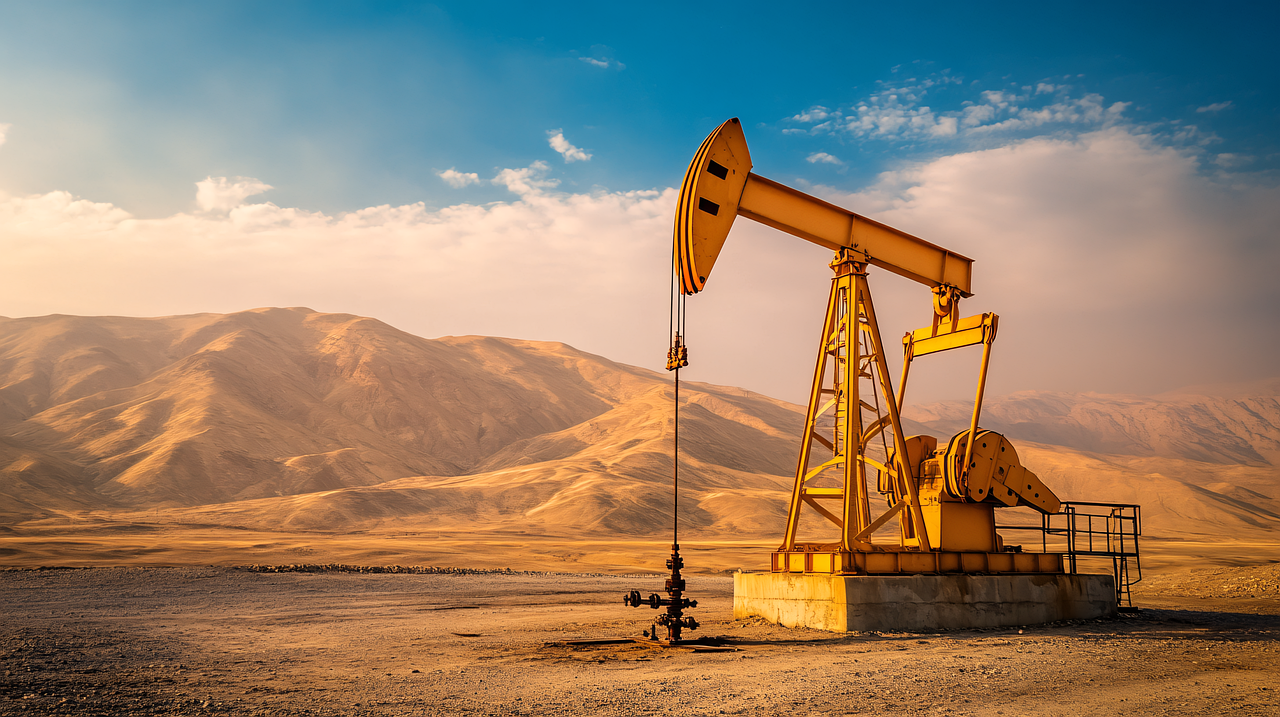After the meeting in Washington, oil fell in price
19 August 08:16
On Tuesday, August 19, oil prices fell in early trading in Asia. Market participants are analyzing the prospects for trilateral talks between Ukraine, Russia and the United States. The successful completion of these talks could lead to the lifting of sanctions on Russian oil, "Komersant Ukrainian" reports citing Reuters.
According to OilPrice.com, futures for Brent crude oil fell 44 cents, or 0.66%, to $66.16 per barrel as of 07:51 Kyiv time. Futures for US West Texas Intermediate (WTI) crude oil fell 47 cents, or 0.74%, to $62.95 per barrel.
The day before, oil prices rose by about 1%.
Ukraine, Russia, and the United States
After talks with Ukrainian President Volodymyr Zelenskyy and a group of European allies at the White House on Monday, US President Donald Trump announced on social media that he had a phone call with Russian President Vladimir Putin. According to him, preparations have begun for a meeting between Putin and Zelenskyy, which will be followed by a trilateral summit with the three leaders.
Zelensky described the direct talks with Trump as “very good” and noted that they discussed Ukraine’s need for security guarantees from the United States.
Читайте нас у Telegram: головні новини коротко
What to expect from the market
“An outcome that involves a reduction in tensions and the elimination of threats of secondary tariffs or sanctions could lead to a further decline in oil prices to our midpoint forecast of $58 per barrel in the fourth quarter of 2025 and first quarter of 2026,”
– said Bart Melek, Head of Commodity Strategy at TD Securities.
However, if the “peace” process slows down and the United States is forced to impose secondary sanctions on Russian oil buyers, the market expects a price spike.
“If the US increases pressure on Russia through broader secondary tariffs against Russian oil buyers (similar to those currently facing India), it could undoubtedly push oil prices to the highs seen a few weeks ago,”
– Melek added.
How to hurt Russia over oil
It is well known that Russia is critically dependent on its energy exports. First of all, on oil exports. In 2024, the Russian federal budget revenues from oil sales amounted to 9.19 trillion rubles (approximately $89.4 billion). Total budget revenues for this period amounted to 36.71 trillion rubles. Thus, the share of oil revenues in the total structure of Russian budget revenues in 2024 was approximately 25%
This indicates that, despite international sanctions and attempts to diversify revenue sources, oil remains a key source of financing for the Russian budget.
Russian Urals oil is traditionally sold at a lower price than Brent and WTI, and it is also subject to additional factors that raw materials from other countries do not experience, namely Western sanctions. However, during all three years of the full-scale war with Ukraine, Russia has been successfully selling its oil – its main buyers today are China and India.
The federal budget of the Russian Federation for 2025 included an oil price of $70. However, according to the Ministry of Finance, on August 15, the price of Russian Urals was $63.16 per barrel. Against this backdrop, the Russian state budget deficit has already amounted to 4.88 trillion rubles, or 2.2% of GDP, and more than a trillion of this has been accumulated over the past month. This hole in the treasury is almost 4.5 times higher than in the same period in 2024, when the deficit was 1.1 trillion rubles, or 0.5% of GDP.
So far, market analysts’ forecasts do not promise Russia any serious problems related to the oil price, as it still has a very large backlash for sales. According to economic expert Oleg Pendzin, even a price of $50 per barrel is still acceptable for Russia.
“Currently, the direct cost of Russian oil production is about $37-38 per barrel. This is the direct cost. The critical figure for Russia is the sales price of $45,”
– the economist explained exclusively for .
So the more likely way to hurt Russia over oil is still to increase sanctions, including secondary sanctions against its buyers. The point of this step is to make it physically impossible for Russia to sell large volumes of oil and thus receive funds to continue its aggressive war of aggression.
Дивіться нас у YouTube: важливі теми – без цензури









